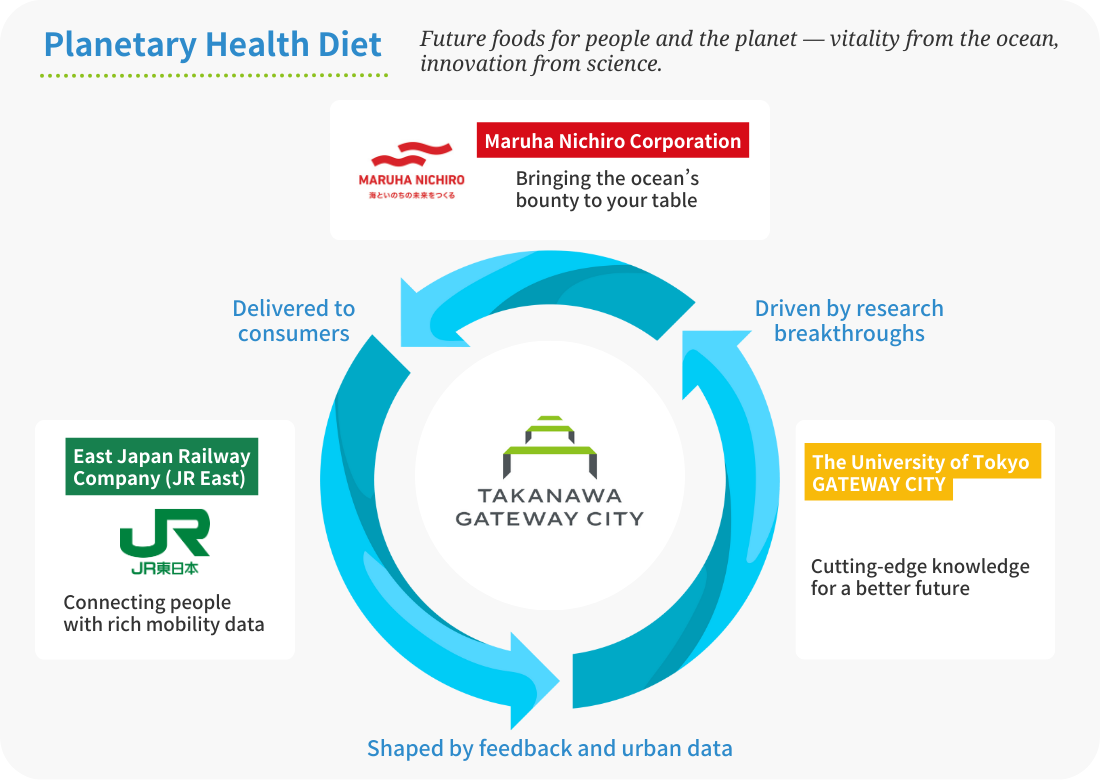What is Planetary Health?
Human activities are causing serious environmental problems, such as climate change, pollution, and the loss of biodiversity.
When the planet’s health declines, the health of people and society also suffers.
Planetary Health is the idea that human health and the health of the Earth are deeply connected.
It encourages us to rethink how our politics, economy, and society work, with the goal of ensuring the well-being of the whole Earth system.
The concept was first introduced in 2015 by the Rockefeller Foundation and The Lancet, emphasizing that human health and the global environment depend on each other.
Since then, many organizations around the world have been actively working based on this idea.

About the Logo
The logo represents our vision of Planetary Health with a blue and green spherical band. The small circle symbolizes both the future ahead and the people and human activities that embrace the Earth.
The blue and green bands are inspired by the image of cell division in a fertilized egg.
Just as a single cell divides and grows into many, they express our hope that new forms of co-creation will continue to emerge and expand.
About
Research Institute of Planetary Health (RIPH)
The Research Institute of Planetary Health (RIPH) at the University of Tokyo was established on January 1, 2025.
Looking ahead to the Earth’s future 100 years from now, RIPH brings together the university’s diverse academic fields in a cross-disciplinary way.
Our mission is to realize Planetary Health—a state where people, cities, and the planet are all sustained in a balanced and healthy manner.

Demonstration and Implementation in the Field
The University of Tokyo GATEWAY Campus is located within TAKANAWA GATEWAY CITY, a development by East Japan Railway Company (JR East).
TAKANAWA GATEWAY CITY is designed as a “living laboratory for enriching life over the next 100 years,” where diverse initiatives are being carried out.
Within this urban space—and across the communities connected by JR East railways—we pursue cutting-edge, practical research and development.
Our activities include the creation of new businesses, the development of data-driven services, and the implementation of innovative solutions in real-world settings.

Co-Creation in the Field
We actively promote collaboration with companies, startups, and other organizations based in TAKANAWA GATEWAY Link Scholars’ Hub (LiSH), a business innovation facility established within TAKANAWA GATEWAY CITY.

Global Development in the Field
Thanks to its convenient access to airports, the site enables not only online collaboration but also the vital “face-to-face” exchange.
Through partnerships with international institutions such as the Planetary Health Innovation Center (Phic) under Institut Pasteur du Japon (IPJ) and the National University of Singapore (NUS), we are also working to foster a global startup ecosystem.
Through these initiatives, the Institute seeks to connect academia with society, expanding a global network of knowledge that will serve as a foundation for shaping a healthy planetary society for the future.
Message from the Director

IGARASHI Kiyohiko
Director, Research Institute of Planetary Health
Professor, Graduate School of Agricultural and Life Sciences, The University of Tokyo
When we look at the state of our planet today, we see a world where humanity struggles with droughts and torrential rains caused by global warming, even as we continue to emit greenhouse gases. We discard surplus food while millions still suffer from hunger, and we face wars both physical and economic.
If such a society continues, environmental burdens will inevitably accumulate, and eventually, we ourselves will no longer be able to live healthy lives on Earth. Although humanity is aware of this reality, we are still failing to take sufficient action to secure the health of both our planet and ourselves in the future.
Planetary Health is a concept that seeks not only human health but also the health of the entire biosphere of our planet. Achieving Planetary Health requires a long-term vision. To this end, the University of Tokyo has entered into a 100-year industry-academia collaboration agreement with East Japan Railway Company (JR East) and has established the University of Tokyo GATEWAY Campus at Takanawa Gateway City, along with launching the Planetary Health Design Laboratory (PHD Lab.) as a co-creation project dedicated to this mission.
The University of Tokyo Research Institute of Planetary Health (UTokyo RIPH) was founded as a university-wide framework to support such initiatives. It enables faculty members from different graduate schools to work together across disciplines on research related to Planetary Health.
At RIPH, we place great importance on diversity, inclusion, and international collaboration. With these values at the core, we are committed to advancing a wide range of activities to realize Planetary Health for future generations.

